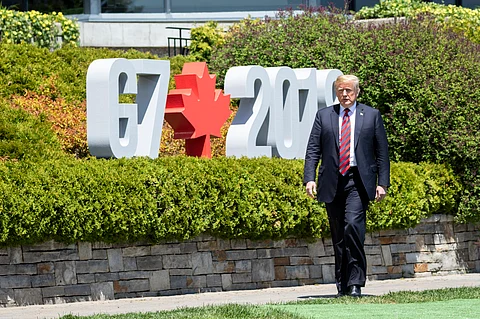

As the fourth day of the Israel-Iran conflict concludes, the intensity of strikes between the two nations has noticeably decreased, suggesting a transition to a war of attrition. However, the involvement of the United States—and President Donald Trump in particular—now looms as a potentially destabilizing factor in the unfolding crisis.
While many of Monday's reported Israeli strikes in Iran appeared to have been carried out by drones, likely operated by Mossad-linked agents from within the country, one notable attack was publicly acknowledged: an Israeli airstrike on the Islamic Republic of Iran Broadcasting (IRIB) headquarters in Tehran. The strike was broadcast live, with news anchor Sahar Emami on air as the missile hit. She later resumed broadcasting from an alternate location.
Israel claims the IRIB building was used for military purposes, a justification it frequently cites—often without substantiating evidence—when civilian infrastructure is targeted. Analysts suggest this marks a shift in Israeli tactics, increasingly resembling the doctrines used in previous conflicts in Gaza and Lebanon, where airstrikes on civilian objects were a defining feature.
Meanwhile retaliatory strikes by Iran were once again modest with a few salvos with a reported 30 missiles along with other drones being fired, though with Israel beginning to employ military censorship in the country it is difficult to confirm what was struck.
The most concerning development on Monday, however, came from U.S. President Donald Trump, who is currently attending the G7 Summit in Kananaskis, Alberta, Canada. Taking to his Truth Social platform, Trump wrote:
"IRAN CANNOT HAVE A NUCLEAR WEAPON. I said it over and over again! Everyone should immediately evacuate Tehran!"
Later that evening, the White House announced that Trump would leave the G7 summit early due to escalating developments in the Middle East. This announcement coincided with reports of significant U.S. aerial and naval deployments to the region.
Trump, who had adopted a more diplomatic tone over the weekend—calling for de-escalation and distancing the U.S. from direct involvement—has now shifted to a more aggressive posture. His latest rhetoric has sparked concerns in Washington and abroad that the United States may be preparing for a more direct role in the conflict.